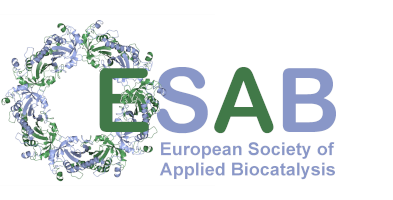Biocatalysis and Biotransformations - The Fundamentals
Abstract
A master- and PhD course in Biocatalysis has been given at the Department of chemistry at Norwegian University of Science and Technology (NTNU) since the early 1990´s. Professor Thorleif Anthonsen started this course and the textbook published by professor Kurt Faber with the title: Biocatalysis and Biotransformations in Organic chemistry, has defined the curriculum of the course to this day. The book has been updated several times, now the 7th edition is used. Elisabeth Jacobsen is now in charge of the course, which is given as a self-study course. The students prepare the lectures and the student group and the teacher discuss the topics after the lectures. Nearly hundred students have followed the course in Trondheim, and the course was also given as a lecture series to 30 master- and PhD candidates at The University of Bucharest, Romania, in May 2022. A 30 minute webinar lecture is not enough to cover all the topics in this book, so the topics which will be discussed are based on what we focus on in our research in The Biocatalysis group at NTNU:
1. Enzymes as catalysts in organic synthesis
2. Mechanistic aspects of enzyme catalysis
3. Enzyme structure and reactivity
4. Why do enzyme-catalysed reactions react so fast?
5. Asymmetrisation or kinetic resolution?
6. Building block for (R)-clenbuterol by ketoreductase 228
7. (R)-Stiripentol from Candida antarctica lipase A.-Low E-value
8. (S)-Practolol from Candida antarctica lipase B. High E-value
9. Reaction media, dynamic kinetic resolution, Sheldons E-factor
10. From 10 to 3 steps to molnupiravir by Candida antarctica lipase B
In 2018, Nobel Laureate distinguished professor Arieh Warshel gave the opening lecture at the conference 4th Multistep enzyme Catalyzed Processes Congress (MECP), which was organized by Elisabeth Jacobsen and the Trondheim Biocatalysis Group. The title was How do enzymes work, and how do they not work? Some aspects from this lecture will be discussed briefly in the webinar. The second opening lecture at the MECP conference was given by professor Kurt Faber, who was happy to answer questions from the Norwegian students who had read his book recently. Professor Faber also had to promise that he would correct a few errors for the next edition!
About the Speaker(s)
 Elisabeth Egholm Jacobsen completed her MSc degree in Organic chemistry and Biotechnology at the Norwegian University of Science and Technology, Department of Chemistry in 1999 after employment as an analytical chemist in the cosmetic industry for 11 years. She earned her PhD in Organic Chemistry in 2004. Since 2005 she helds a professor position at the same department. Her research focusses on synthesis of enantiopure biologically active compounds, f. inst. enantiopure drugs, by use of enzymes as chiral catalysts. Her teaching has been focusing on green chemistry, biocatalysis, general and organic chemistry, natural product chemistry, spectroscopic methods and chromatography. She has since 2019 managed the EEA funded project Green Chemistry for Advanced Materials (GreenCAM) in collaboration with University of Bucharest, Romania.
Elisabeth Egholm Jacobsen completed her MSc degree in Organic chemistry and Biotechnology at the Norwegian University of Science and Technology, Department of Chemistry in 1999 after employment as an analytical chemist in the cosmetic industry for 11 years. She earned her PhD in Organic Chemistry in 2004. Since 2005 she helds a professor position at the same department. Her research focusses on synthesis of enantiopure biologically active compounds, f. inst. enantiopure drugs, by use of enzymes as chiral catalysts. Her teaching has been focusing on green chemistry, biocatalysis, general and organic chemistry, natural product chemistry, spectroscopic methods and chromatography. She has since 2019 managed the EEA funded project Green Chemistry for Advanced Materials (GreenCAM) in collaboration with University of Bucharest, Romania.
